CuriosiD: Why isn’t Lake St. Clair a Great Lake?
Pat Batcheller October 23, 2025A listener who grew up near the lake wants to know why it doesn’t merit the title of “great.” We found people who think it’s great, anyway.
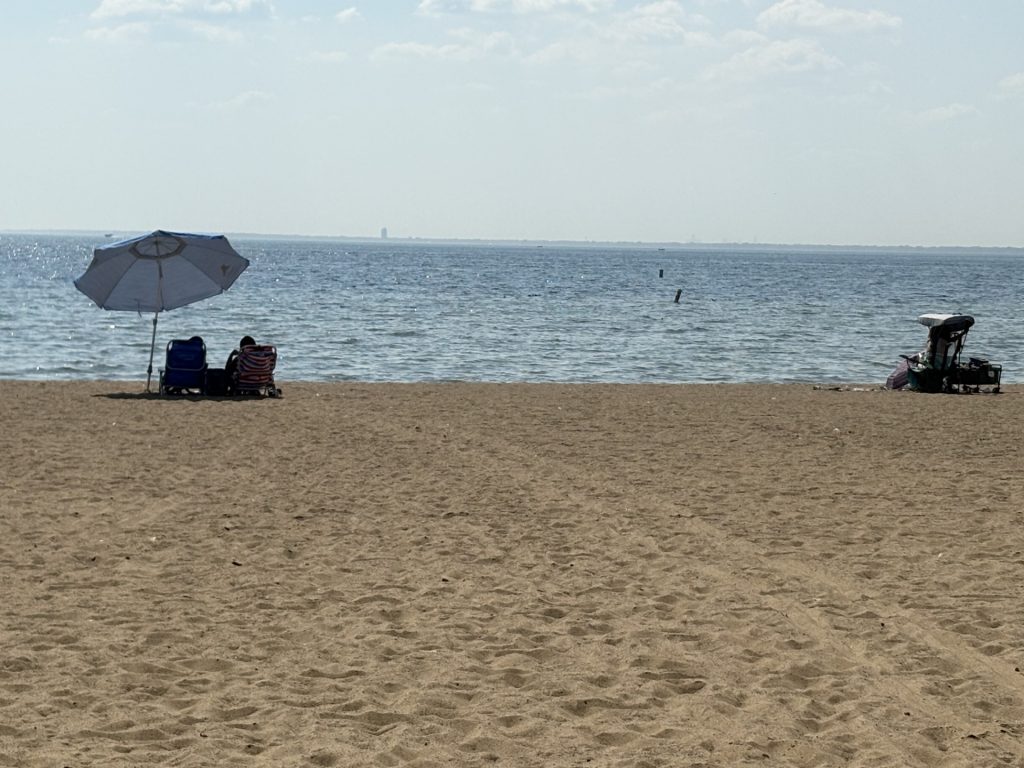
Sunbathers enjoy the beach at Lake St. Clair Metropark in Harrison Township.
In this episode of CuriosiD, we answer the question:
Why isn’t Lake St. Clair considered a Great Lake?
An easy way to remember the names of the five Great Lakes is by thinking of HOMES—Huron, Ontario, Michigan, Erie, and Superior. Add St. Clair to the list, re-arrange the first letters, and you get “SCHMOES.” Any schmo knows St. Clair is not considered a Great Lake. But why not?
Bryan Champine of Pittsburgh grew up on the lake in Chesterfield Township. He wants to know why the lake doesn’t get the same recognition as the others that surround Michigan.
“I always call it the ‘not-so-great’ lake,” Champine says. “It’s such a contributor to the overall health of the Great Lakes system, I want to see it get more appreciation.”
So, let’s dive into his question: Why isn’t Lake St Clair one of the Great Lakes?
Size matters
Donna Kashian has thought about this a lot. She’s a professor of biological sciences at Wayne State University. She’s also the president of the International Society for Great Lakes Research. Kashian and her students have studied Lake St. Clair for years. She offers what seems like the obvious answer to the question.
“I do think it’s solely on size,” Kashian says.
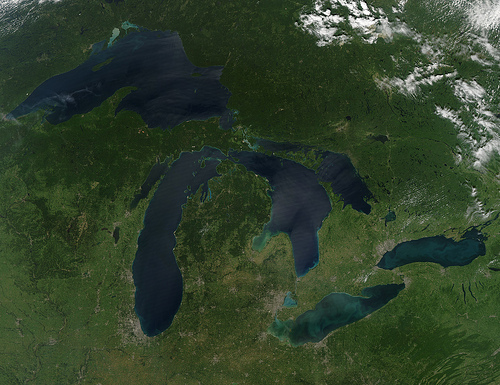
One look at a map supports the professor’s hypothesis. Each Great Lake dwarfs Lake St. Clair, which covers 430 square miles. That’s less than a tenth the size of Lake Ontario, the smallest Great Lake in terms of surface area. In terms of depth and volume, Lake St. Clair is shallower and holds 99 percent less water than Lake Erie.
While it may not be great in size, Kashian says Lake St. Clair’s impact on the rest of the lakes is huge.
“I look at it as the heart of the Great Lakes, because it’s even shaped like a heart,” she says.
The fishing is great
That heart pumps billions of dollars a year into Macomb County’s economy alone, providing the lifeblood for recreation, such as sport fishing.
The Michigan Department of Environment, Great Lakes, and Energy says nearly a third of all sport fish caught in the Great Lakes basin every year come out of Lake St. Clair. The Bassmasters professional fishing tournament happens on the lake every summer.
Amateur anglers can charter a fishing boat or find a secluded spot on shore, like Tom Anderson of St. Clair Shores did. He fishes the Clinton River for perch, pike, and walleye, but rarely keeps anything he catches.
“I’m just out here to have fun,” Anderson says. “I really don’t care to have to clean them.”
Boaters love it
Boating is big business on Lake St. Clair, but it’s also a lifestyle. Steve Dobreff calls Harrison Township “Boat Town USA.”
“We have more boats per capita than anywhere else in the world in this little square mile territory,” he says.
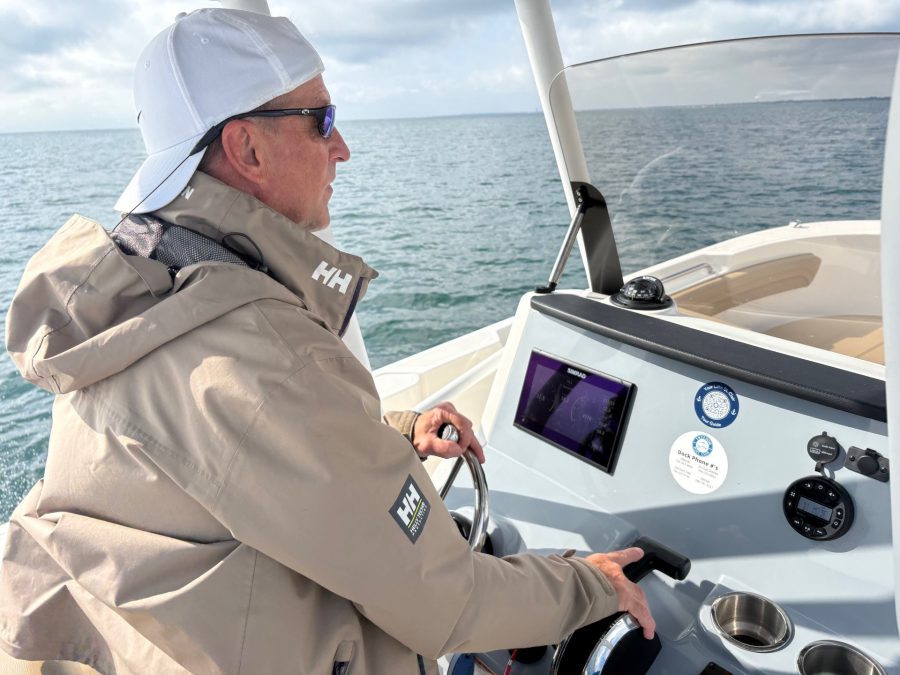
Dobreff is a lawyer, but his passion is boating. He owns the Freedom Boat Club on South River Road. The club offers members the benefits of using a boat without the hassle of owning one.
“We own the boats, we do all the maintenance, all the work that you don’t want to do as an owner,” Dobreff says. “And our members get to use the boats here on Lake St. Clair.”
It’s a vital shipping route
Pleasure boats share the water with much bigger vessels, namely freighters carrying ore and other cargo. Lake St. Clair connects lakes Erie and Huron, creating a critical link in the multi-billion-dollar Great Lakes shipping industry.
The Lake Carriers Association says ships carry more than 160 million metric tons of commercial cargo across the Great Lakes and Lake St. Clair every year.
Policing the lake is a big job
The Macomb County Marine Division watches over boating and other recreational activities on Lake St. Clair. Its commander is Lt. Gary Wiegand. He says deputies patrol the water to ensure are boating safely.
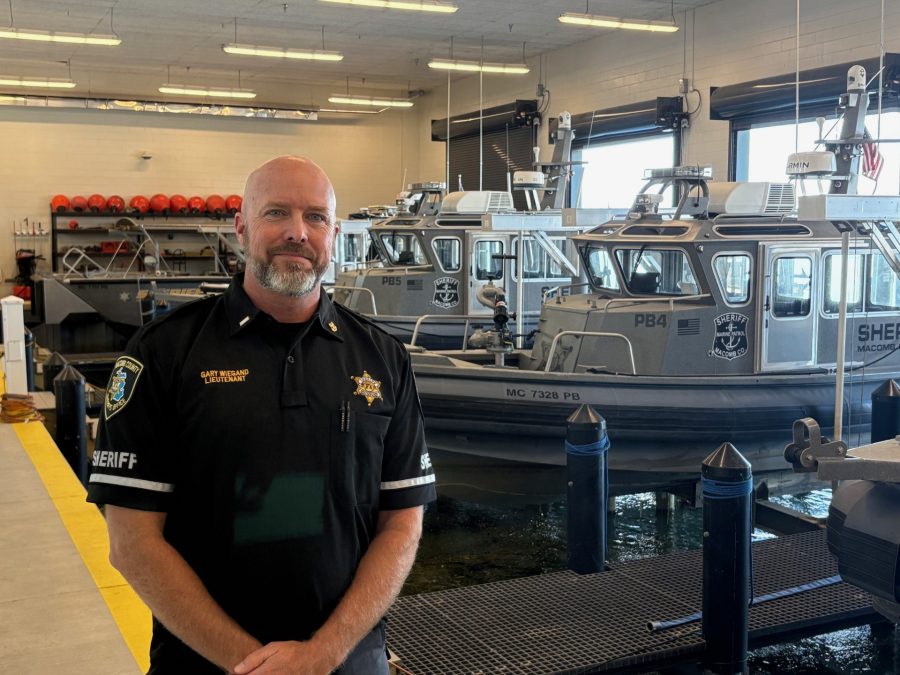
“Life jackets are a big concern,” Wiegand says. “We’re also available for any kind of search and rescue or recovery operations.”
The marine division employs eight full-time sheriff deputies year-round and 70 reserve officers in the summer. Wiegand says law enforcement is their primary mission, but education is part of the job, too.
“We teach boater safety year-round at no cost to the public,” he says.
The lake is central to the environment
Lake St. Clair features the largest freshwater delta in North America. Much of that water flows through an area called “the flats” on Harsen’s Island. This creates a large habitat for all kinds of animal life, especial waterfowl.
John Darling is a wildlife technician for the Michigan Department of Natural Resources. He oversees the managed hunting unit at the Lake St. Clair Flats State Wildlife area on the island. He says this is a vital hub for bird migration.
“We are at the point where the Mississippi Flyway and the Atlantic Flyway for waterfowl come together,” Darling says. “We get crossovers from both flyways with birds heading to the Atlantic Coast birds that are heading down to Mississippi.”

As water flows from the St. Clair River into Lake St. Clair, Darling says the wetland acts as a filter.
“It’s slowing down that water, it’s allowing sediment to drop out,” he says. “It’s absorbing some of the pollution that’s coming downstream.”
Millions get drinking water from the lake
Removing pollutants is critical because Lake St. Clair provides drinking water for more than four million people in southeast Michigan. Candice Miller is the Macomb County Public Works Commissioner. She’s lived her entire life near the lake and says protecting it is a big job.

“I look out there and I think about how I’m trying to do whatever we can in our department to impact the water quality and the quality of life for people that live around the lake,” she says.
Making a small lake great (again?)
Miller’s previous job was representing Macomb County in Congress. The first resolution she introduced in the House in 2003 called on Washington to preserve and protect Lake St. Clair as a vital part of the Great Lakes System. If she had a vote today, Miller says she’d give the lake a promotion.
“In my mind it is a great lake,” she says. “I don’t care if anybody says anything different, we love it.”
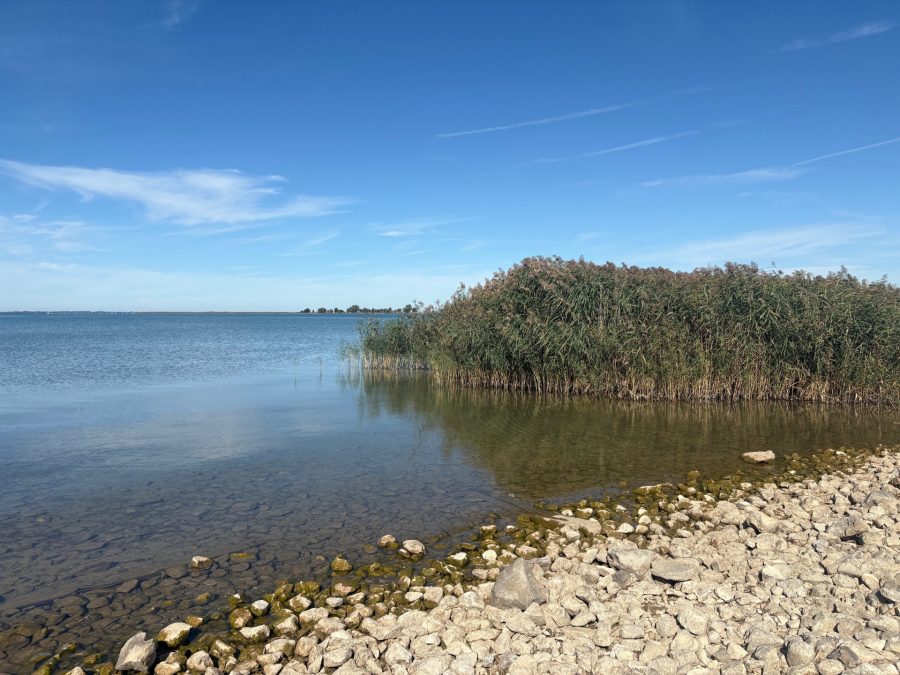
And there is precedent. In 1998, the federal government designated Lake Champlain between upstate New York and Vermont as the sixth Great Lake. That lasted about two weeks after states bordering the other five lakes objected.
Congressman Shri Thanedar, whose district includes part of Lake St. Clair, says he would not make it an official Great Lake. But he agrees with Candice Miller it’s worth protecting.

“It supports 18,000 jobs, it contributes almost $2 billion in economic activity annually, so it means a lot,” Thanedar says.
The Detroit Democrat says he has sponsored efforts in both the U.S. House and the Michigan Legislature to clean up pollution in Lake St. Clair.
“A lot of the resources have to come from the federal government,” Thanedar says. “We need to make it a priority to clean our water.”
WDET’s CuriosiD series answers your questions about everything Detroit. Subscribe to CuriosiD on Apple Podcasts, Spotify, NPR.org or wherever you get your podcasts.
We want to hear from you!
Have a question about southeast Michigan’s history or culture? Send it our way at wdet.org/curiosid, or fill out the form below. You ask, we answer.
Want more stories like this? Sign up for WDET’s weekly newsletter and never miss a curiosity uncovered.
Support the podcasts you love.
One-of-a-kind podcasts from WDET bring you engaging conversations, news you need to know and stories you love to hear. Keep the conversations coming. Please make a gift today.
More CuriosiD
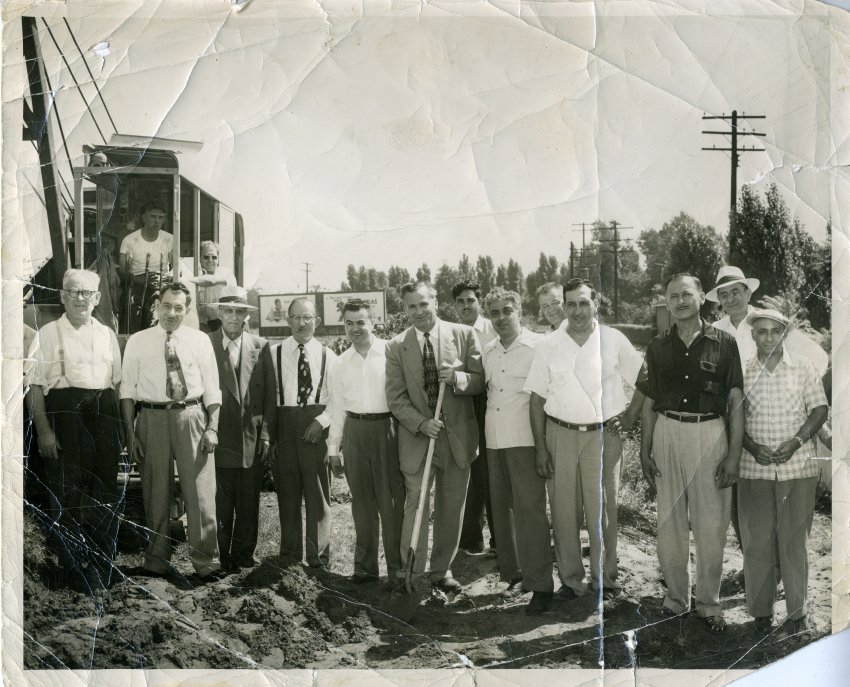
CuriosiD: How Did Detroit Become a Center for Arabs in the United States?
A 14-year-old listener from Northville learns how faith and family helped shape one of Detroit’s best-known communities.

CuriosiD: Was there busing in Detroit in the early 1960’s?
There was, and battles in Detroit shaped busing throughout the U.S.
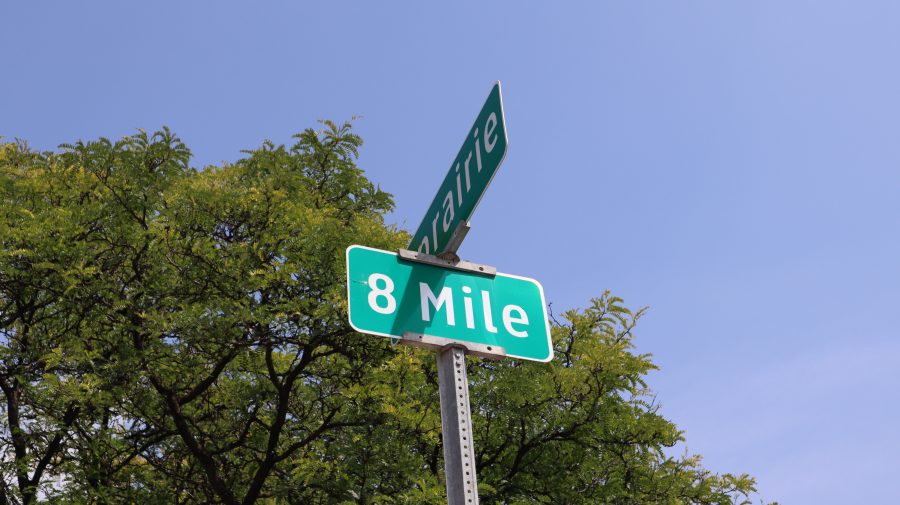
CuriosiD: What’s the story behind metro Detroit’s mile roads?
Road trip! In this episode, we answer your questions about Metro Detroit roads. We dig into the mile roads, John R and the city’s street layout.
